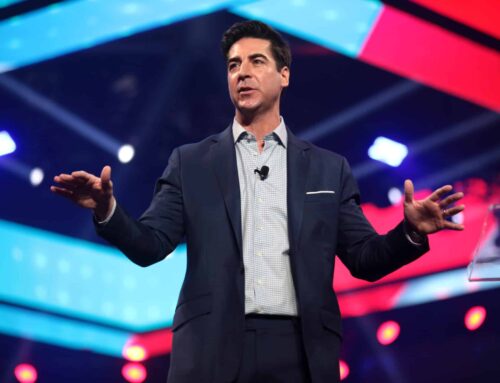(Originally Posted 12/13/2010)
The last legislative trains are pulling out of Capitol Hill station and there are a bunch of hobo provisions trying to catch a ride. Whether you are for or against the grand tax compromise the President and Congressional Republicans hammered out, or the proposed final spending bills for fiscal year 2011, one has to admit larding them up with parochial provisions is the wrong way to go.
Top sweeteners in 2010 tax bill
The tax extension package being debated in the Senate does much more than meets the eyes. While most people are focused on the bill’s most prominent provisions—renewal of the Bush tax cuts, a temporary fix for the Alternative Minimum Tax (AMT), extension of unemployment benefits for a year, changes to the estate tax— it’s also chock full of dozens of narrow and special interest provisions. While possibly laudable, these narrow, “temporary” provisions are routinely extended, often annually, without a thorough evaluation of their effectiveness. Added together, these narrow provisions result in tens of billions of dollars in special tax breaks without any real debate where Congress determines they are the best way to spur the economy or meet other goals.
1. Extension of Ethanol Tax Credits
The Volumetric Ethanol Excise Tax Credit, otherwise known as VEETC, is the largest subsidy to corn ethanol. The tax credit is worth 45 cents per gallon of ethanol blended with gasoline, costing U.S. taxpayers $5.16 billion in 2009.
This subsidy, which has cost taxpayers $21.5 billion since 2006, does not go to corn farmers or ethanol refiners, but to fuel blenders. Blenders, often large oil and gas companies such as Shell Oil, count the tax credit against income tax payments to the U.S. Treasury.
The Government Accountability Office stated that VEETC is duplicative of the current Renewable Fuels Standard, which guarantees a market for corn ethanol, and taxpayers are no longer needed to support ethanol through the VEETC. The Congressional Budget Office also estimates that the subsidies are responsible for a 28-47% rise in the price of corn.
Estimated cost to taxpayers in 2011: $6 billion
2. Deduction of State and Local General Sales Taxes
The bill extends for two years (through 2011) the option to deduct itemized state and local sales taxes from federal income tax, but only if you do not deduct state income tax. Therefore the major beneficiaries are the residents of states that don’t pay state income tax: Alaska, Florida, Nevada, South Dakota, Texas, Washington and Wyoming. This provision was eliminated from the code in the 1986 reform.
Estimated cost to taxpayers in 2011: $2.8 billion
3. Research & Development Tax Credit
The legislation reestablishes and extends for two years (through 2011) a lucrative tax credit for companies doing research and experimentation in the United States. Companies that have benefited from this provision include Microsoft Corp., Boeing Co., United Technologies Corp., Electronic Data Systems Corp. and Harley-Davidson.
Estimated cost to taxpayers in 2011: Nearly $6 billion
4. Extension of Seven Year Straight Line Cost Recovery Period for Motorsports Entertainment Complexes
Undercutting IRS rulings to the contrary, owners of motorsports entertainment complexes (aka NASCAR tracks) would be able to write-off the cost of their facilities on their taxes over seven years, instead of the standard 39 years for nonresidential property and 15 years for “improvements” (such as fences and roads), as long as the venue hosts an event within three years of its completion. Such an accelerated depreciation schedule would increase the value of the yearly deduction for owners. In addition to wanting to stretch out the depreciation period, which would generate more revenue, the IRS questions whether the increasingly popular tracks really belong in the same tax category as amusement parks. These owners have also gotten plenty of other tax breaks over the years from states and localities eager to get speedways. The provision encompasses all facilities including grandstands, parking lots, and concession stands.
Estimated cost to taxpayers in 2011: $40 million
5. Extension of Enhanced Charitable Deduction for Contributions of Food Inventory
The bill extends for two years (through 2011) the provision allowing an enhanced deduction for the charitable contribution of food inventory. Under this provision, the food must be “apparently wholesome food.” However, “wholesome” food isn’t necessarily healthful or even edible and is defined as “food intended for human consumption that meets all quality and labeling standards imposed by Federal, State, and local laws and regulations even though the food may not be readily marketable due to appearance, age, freshness, grade, size, surplus, or other conditions.”
Estimated cost to taxpayers in 2011: $92 million
6. Extension of Enhanced Charitable Deduction for Contributions of Book Inventories to Public Schools
The bill extends for two years (through 2011) the provision allowing C corporations to claim an enhanced deduction for contributions of book inventory to public schools (kindergarten through grade 12).
Estimated cost to taxpayers in 2011: $37 million
7. Extension of Special Expensing Rules for U.S. Film and Television Productions
In an effort to keep film and television production in the U.S, the bill extends for two years (through 2011) the option of immediately deducting significant costs for most film or television productions. Under this provision producers can elect to expense in the current year the first $15 million of production costs incurred in the United States ($20 million if the costs are incurred in economically depressed areas in the United States). This can be used if at least 75% of the costs are for services performed in the U.S. and is available for both blockbusters and those that go “directly to video cassette or any other format.” This provision only applies to the first 44 episodes of a television series and does not include sexually explicit productions.
Estimated cost to taxpayers in 2011: $162 million
8. Extension of Temporary Increase in Limit on Cover Over of Rum Excise Tax Revenues to Puerto Rico and the Virgin Islands
The bill extends for two years (through 2011) the provision increasing the excise tax cover over payment to $13.25 per proof gallon for rum distilled in Puerto Rico and U.S. Virgin Islands.
For many years, rum imported to the U.S. was subject to a $10.50 excise tax per proof gallon. For deficit reduction purposes, the excise tax was increased in 1985 and again later to its current level of $13.50 . Under long-standing U.S. law, Puerto Rico and U.S. Virgin Islands are entitled to a $10.50 “cover over,” or rebate on the excise taxes. The U.S. has routinely extended a “temporary” additional cover over of $2.75 (total $13.25), leaving only 25 cents going into the U.S. Treasury. Major beneficiaries of this provision are the liquor companies Diageo and Bacardi. In fact, the USVI is using their future cover over payments to back bonds to build Diageo (the Britain based world’s largest liquor conglomerate) a new distillery if it shifts Captain Morgan production from another U.S. territory, Puerto Rico.
Estimated cost to taxpayers in 2011: $235 million
9. Extension of American Samoa Economic Development Credit
In general, this credit allows certain corporations operating in American Samoa to offset a portion of their U.S. tax liability on income earned in American Samoa from active business operations, sales of assets used in a business, or certain investments in American Samoa. This credit would be extended for two years (through 2011).
Estimated cost to taxpayers in 2011: $15 million
10. DC First-time Homebuyer Tax Credit
The bill also extends for two years (through 2011) the $5,000 first-time homebuyer credit for the District of Columbia.
Top Sweeteners in Stop-Gap Spending Bill
A lot of attention has been paid to the sweeteners sprinkled on top of the temporary tax cut extension bill. But the tax bill is not the only legislation lawmakers are trying to stuff with pet projects or issues before leaving town for the holidays. As the end of the year approaches, lawmakers are trying to attach dozens of their pet causes onto must pass legislation.
1. Expansion of Department of Energy’s Title 17 Loan Guarantee Program
House Appropriations Chairman Daniel Obey (D-WI) has proposed a $7 billion increase in loan authority for nuclear power and an additional $3 billion in lending authority for fossil fuels. The White House asked for $9 billion in additional authority, which would increase the total nuclear loan program to $27.5 billion, to cover a total of four nuclear projects ($8.3 billion has been allocated for two reactors in Georgia).
2. Increased Nuclear Weapons Spending
The administration requested an additional $624 million for the National Nuclear Security Administration to “modernize” the nuclear weapons complex. This is a down payment on the White House plan to pump up investment in the complex by another $4.1 billion in exchange for Senate passage of the new START treaty with Russia. Unfortunately, it’s going to an agency with notoriously poor financial management . At least Congress specified that the funding is “contingent” on treaty ratification, so NNSA doesn’t get anything if START doesn’t take off.
Conclusion
After Congress’s rejection of the debt commission’s proposal and continued failure to pass a single spending bill two and a half months into the new budget year, these end-of-year goodies makes one further doubt how serious Washington is about grappling with budget deficits for as far as the eye can see.













Get Social